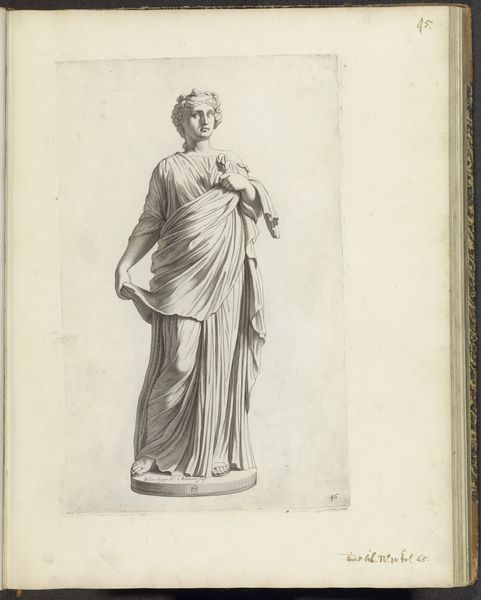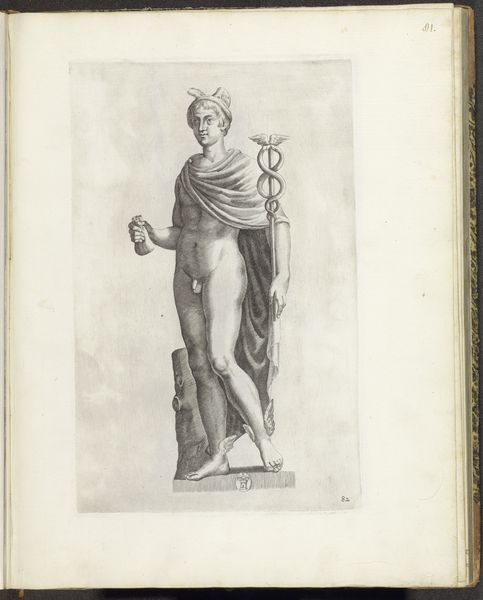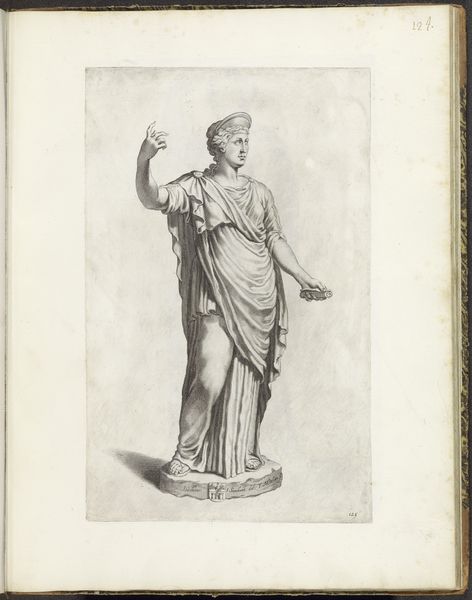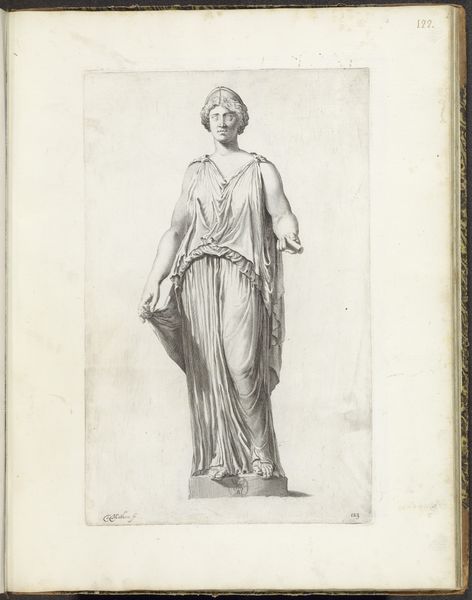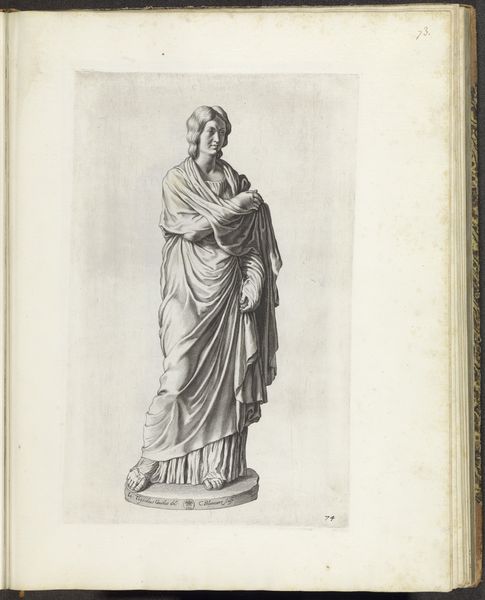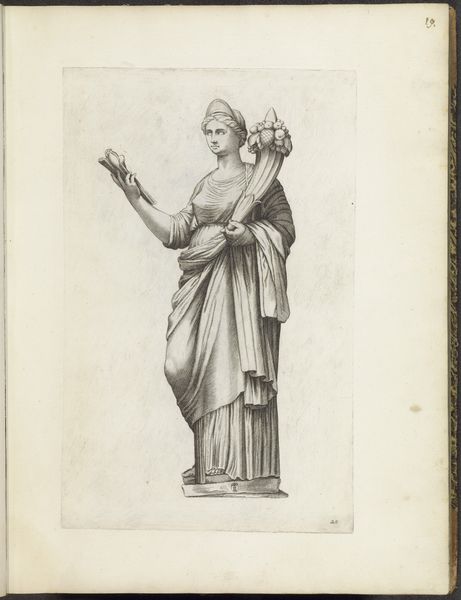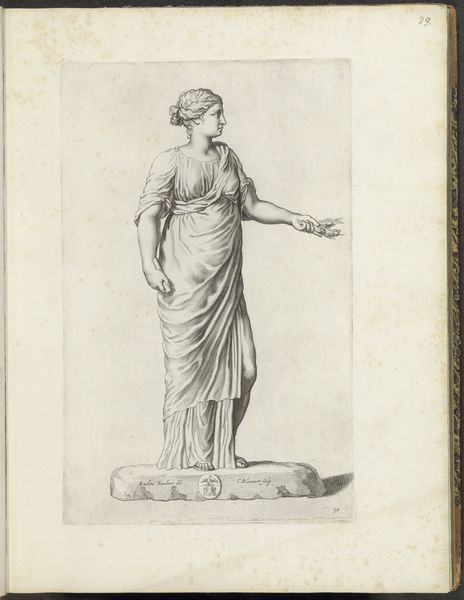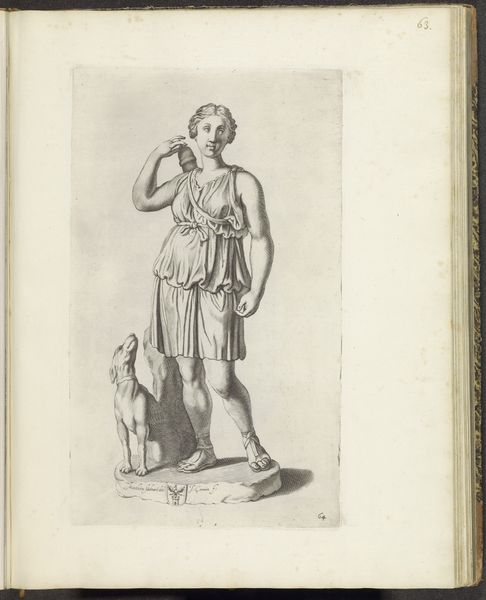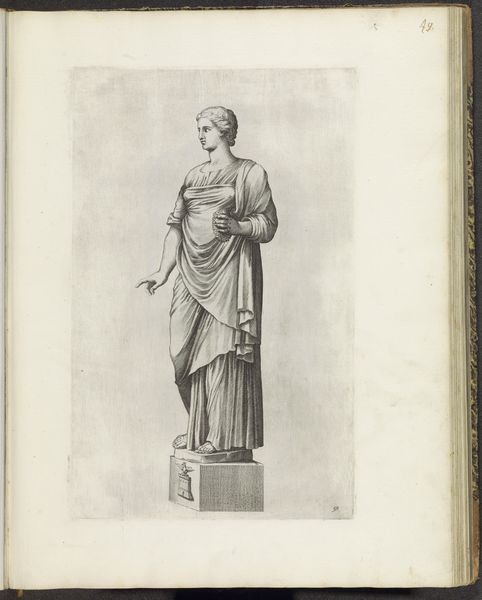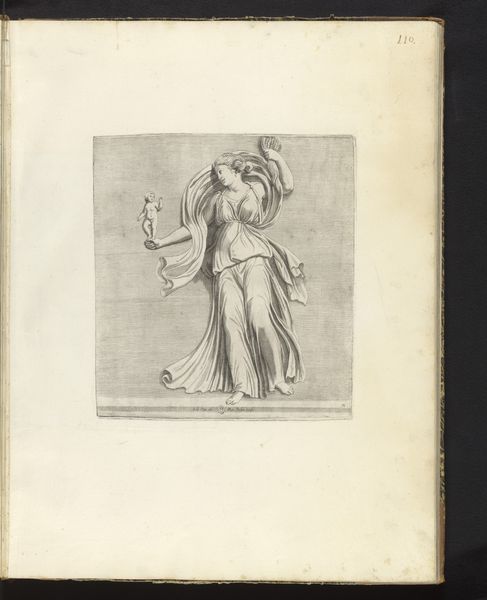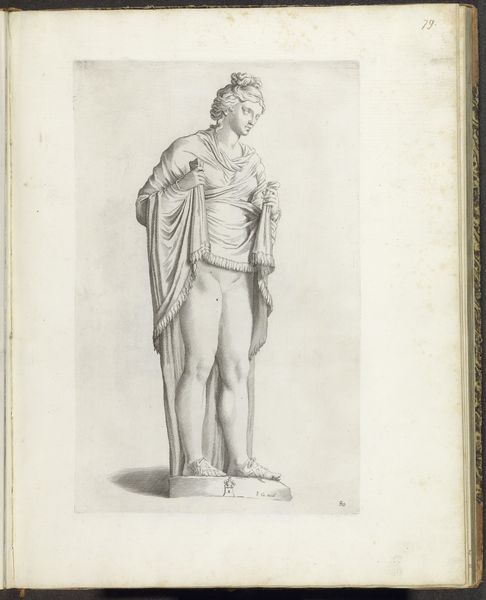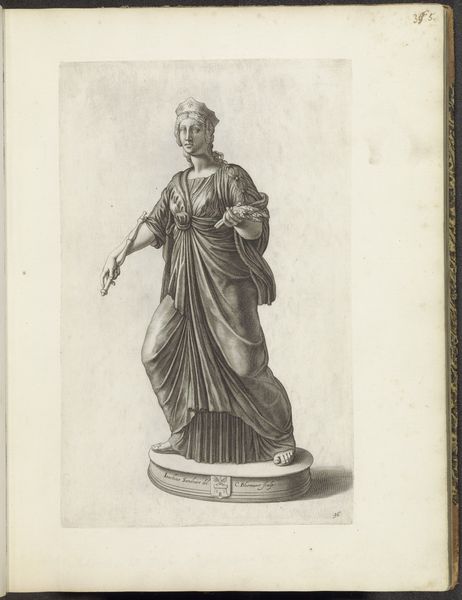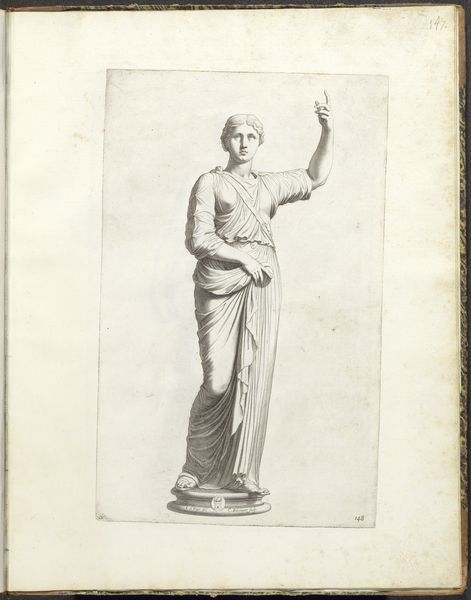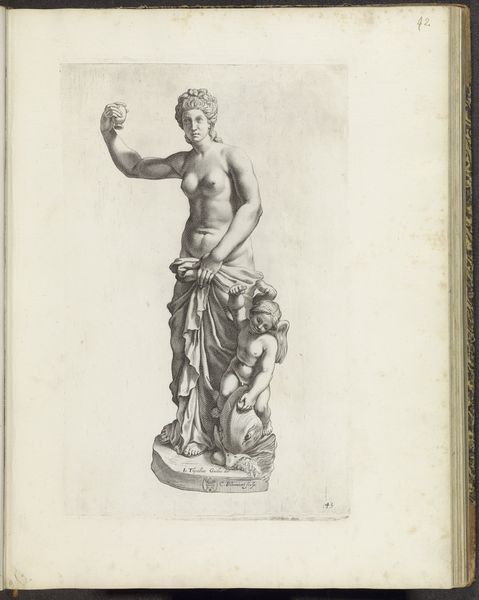
drawing, pencil
#
drawing
#
baroque
#
pencil sketch
#
classical-realism
#
figuration
#
pencil
#
academic-art
Dimensions: height 370 mm, width 235 mm
Copyright: Rijks Museum: Open Domain
This print of a sculpture of Flora was made by Cornelis Bloemaert, likely in the mid-17th century. The medium is engraving, a process that demands careful, controlled labor. Lines are incised into a metal plate, then filled with ink and printed. Consider how this technique influences the appearance. The crisp, precise lines mimic the cold, hard feel of carved stone. Bloemaert’s skill in using cross-hatching creates volume and shadow, giving the figure a weighty, three-dimensional presence. Engraving, unlike the free gestures of drawing or painting, mirrors the sculptor's process of slowly removing material to reveal the form within. Both require patience, precision, and a deep understanding of form. This print thus not only depicts sculpture but embodies the values of skilled handwork. In an age increasingly dominated by mass production, let’s remember that such images played a crucial role. They disseminated knowledge of classical forms, spreading aesthetic ideals to wider audiences. They celebrated not just the beauty of Flora, but also the artistry of human hands.
Comments
No comments
Be the first to comment and join the conversation on the ultimate creative platform.
